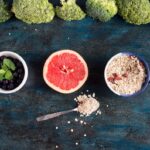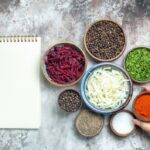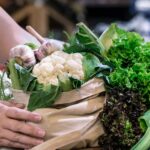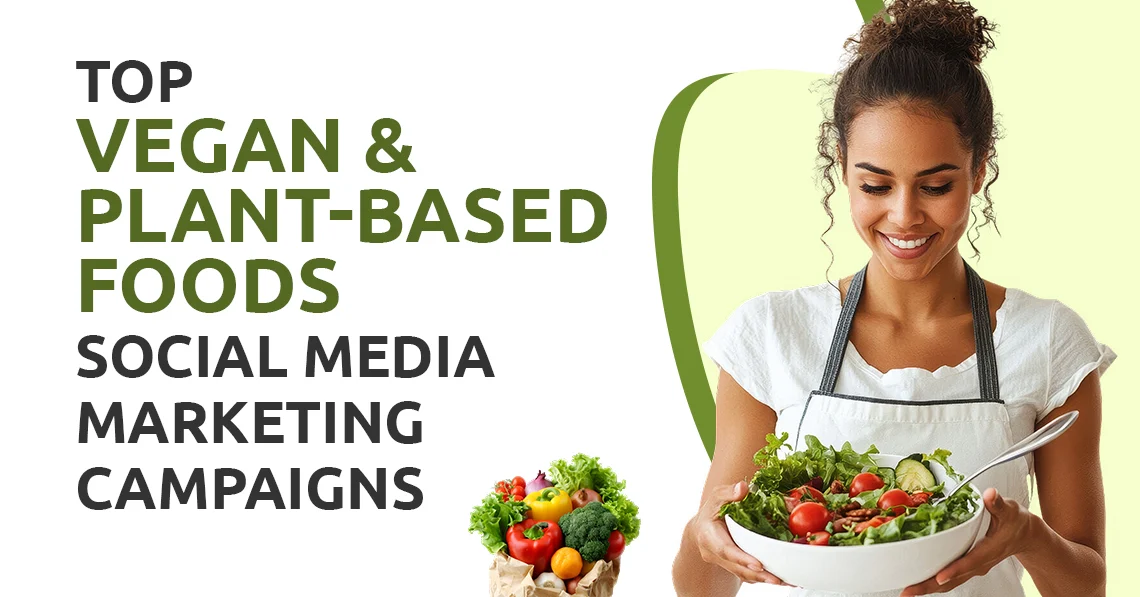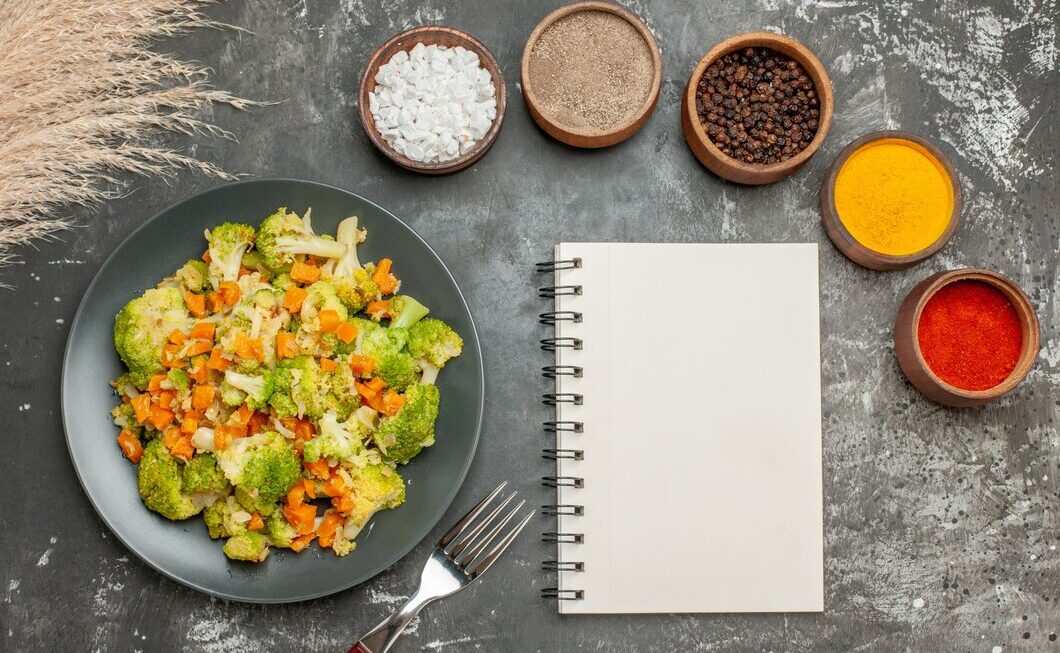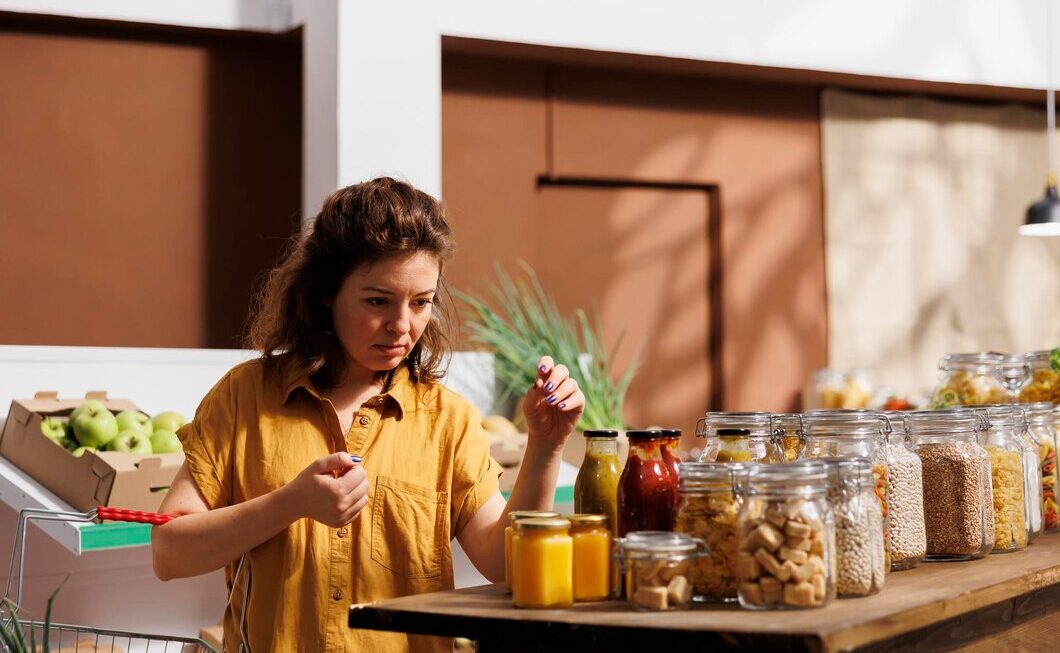In the digital age, inspiration for what to cook and eat is often found scrolling through social media feeds. Food influencers have become powerful guides, shaping trends, sharing techniques, and building communities around food. For those exploring or embracing a vegan lifestyle, these creators can be invaluable sources of recipes, motivation, and practical advice. But with countless voices online, how do you find reliable, relatable, and truly inspiring vegan food influencers? This guide offers a multi-perspective approach to navigating the vibrant world of vegan content creation, helping you evaluate influencers based on nutritional soundness, ethical transparency, sustainability focus, and practical usability, with tips for finding creators whose content resonates with your life, including access to ingredients here in Vadodara and across India.
LENS 1: Nutritional Analysis (Guidance or Glamour?)

Not all online food content is created equal, especially when it comes to health. Critically evaluating the nutritional quality of information shared by influencers is crucial.
- Credentials Matter (But Are Rare): Understand the difference between a Registered Dietitian (RD/RDN) or qualified nutritionist providing evidence-based advice, and a home cook sharing their personal recipes and experiences. While both can be inspiring, only qualified professionals should be trusted for specific health claims or therapeutic dietary advice. Influencers without credentials sharing health advice should be viewed with caution.
- Content Focus: Whole Foods vs. Processed: Observe the influencer’s general approach. Do their recipes primarily feature whole, unprocessed ingredients like fruits, vegetables, legumes, whole grains, nuts, and seeds? Or do they frequently showcase highly processed vegan meats, cheeses, sugary treats, and junk food? While occasional indulgence is fine, influencers promoting a balanced, whole-foods foundation are generally better guides for long-term health.
- Addressing Key Vegan Nutrients: Does the influencer acknowledge and address nutrients that require attention on a vegan diet, particularly Vitamin B12? Do they promote reliable sources (fortified foods/supplements) or spread misinformation about getting B12 from unproven plant sources (like unwashed produce or certain algae)? This is a critical litmus test for nutritional responsibility.
- Red Flags: Be wary of influencers promoting extreme diets (e.g., very low calorie, fruitarian), “detoxes,” “cleanses,” or making unsubstantiated claims about foods curing diseases. Pseudoscience is rampant online; rely on evidence-based sources. Look for transparency about why ingredients are used, beyond just taste or appearance.
- Recipe Balance: Look at individual recipes – do they offer a reasonable balance of macronutrients (protein, carbs, fat) and fiber, or are they skewed heavily towards one category (e.g., very high fat, mostly refined carbs)? When you see a recipe from an influencer, do you consider its overall nutritional balance beyond just whether it looks delicious?
Nutritional Deep Dive: How to Nutritionally Vet Influencer Recipes/Advice
- Check Credentials: Does the influencer have relevant qualifications (RD, MD, PhD in nutrition) if giving specific health advice? Or are they clearly sharing personal recipes/experiences?
- Look for B12 Mention: Do they responsibly address the need for B12 supplementation/fortification for vegans?
- Evaluate Ingredient Quality: Are recipes based mainly on whole plant foods or heavily processed vegan products?
- Assess Balance: Does the meal/recipe seem reasonably balanced in terms of protein, complex carbs, healthy fats, and fiber?
- Beware of Buzzwords: Be skeptical of claims involving “detox,” “cleanse,” “miracle food,” “superfood cure,” or extreme restrictions.
- Cross-Reference Claims: If an influencer makes a strong health claim, verify it with reputable sources (health organizations, registered dietitians, peer-reviewed research).
Voice of Experience (Registered Dietitian): “Vegan influencers can be fantastic for recipe inspiration, but viewers must be critical consumers of any health advice shared. Look for creators who emphasize balanced, whole-food meals and responsibly address key nutrients like B12. Be wary of unqualified individuals making therapeutic claims or promoting restrictive fads. Inspiration is great, but personalized nutritional guidance should come from qualified professionals.” – Dr. Alpa Shah, RDN
LENS 2: Ethical Framework (Values & Visibility)

Veganism is fundamentally an ethical stance for many, and the influencers representing it online carry certain ethical responsibilities.
- Articulating the ‘Why’: Influencers who share why they are vegan (animal compassion, environmental reasons) can provide deeper inspiration and connection for followers who share those values. Their content becomes more than just food; it’s about purpose.
- Transparency is Non-Negotiable: Ethical influencers are transparent about sponsored content, collaborations, and affiliate links (using clear disclosures like #ad, #sponsored, #paidpartnership). Hiding paid promotions erodes trust and is often against advertising regulations. Be wary of influencers constantly pushing specific products without clear disclosure.
- Ethical Sourcing Awareness: Do influencers discuss or model ethical sourcing? This could involve mentioning Fair Trade ingredients, supporting local farmers, choosing sustainable packaging, or discussing labour issues related to certain foods (like cashews). While not always the focus, awareness adds depth.
- Inclusivity & Tone: Ethical influencers foster a welcoming, non-judgmental community. They avoid vegan ‘infighting’ or creating an exclusive ‘purity’ culture, recognizing that everyone’s journey is different.
- Mindful Consumption vs. Consumerism: Does the influencer inspire mindful cooking and enjoyment, or primarily promote buying new gadgets, expensive ingredients, and constant consumption? Ethical influence encourages resourcefulness and appreciation over materialism.
- Representation Matters: The vegan influencer space benefits from diversity, showcasing voices and cuisines from various backgrounds, including India. Supporting diverse creators helps create a more inclusive and representative movement. How important is sponsorship transparency to you when deciding which influencers to trust?
Hidden Benefits: Community & Shared Values
Following influencers who genuinely share your ethical values can create a strong sense of community and belonging, providing motivation and support on the vegan journey, even if experienced virtually.
Voice of Experience (Media Ethics Scholar): “Influencer marketing operates in a space where authenticity and commerce blur. Ethically, the onus is on creators to be transparent about paid relationships using clear, unambiguous disclosures. Followers also have a responsibility to be critical consumers, recognizing that sponsored content is advertising, even when presented personally. Trust is built on honesty.” – Professor Riya Mehta, Media Studies
Critical Reassessment: Performance vs. Reality & Impact
Remember that social media often presents a curated, idealized version of life. Influencer kitchens might be perfectly styled, recipes might not always work perfectly the first time for followers, and the promotion of certain products might be driven more by profit than genuine recommendation. Critically evaluate the overall impact – does following them inspire positive action or feelings of inadequacy/consumer pressure?
LENS 3: Ingredient Science & Environment (Sustainable Feeds?)

Influencers can play a role in promoting sustainable food practices, or inadvertently encourage less sustainable trends.
- Explaining the ‘How’ & ‘Why’: Influencers who explain basic cooking science (why techniques work, ingredient functions) empower their audience with transferable skills, promoting more intuitive and resourceful cooking.
- Promoting Seasonality & Locality: Look for influencers who highlight seasonal produce (relevant to their region, or encouraging followers to find what’s local to them). Do they showcase trips to local markets (like those in Vadodara)? Do they adapt recipes based on seasonal availability? Influencers like @sustainablyvegan or @zerowastecutie champion these principles internationally. Indian influencers might showcase regional specialties or seasonal bounty naturally.
- Food Waste Awareness: Do creators share tips for using scraps, repurposing leftovers, or storing produce correctly to minimize waste? This is a key aspect of sustainable cooking. Chefs like Max La Manna (@maxlamanna) focus heavily on this.
- Ingredient Choices & Footprint: Observe the typical ingredients used. Are they based on low-impact staples like legumes, local grains (millets!), and seasonal vegetables? Or do they frequently feature imported, water-intensive nuts (almonds/cashews without context), out-of-season berries, or numerous packaged specialty products?
- Packaging Consciousness: Do they model using reusable containers, buying in bulk, or choosing minimally packaged goods? Or is their content filled with single-use plastics and excessive packaging? Does the influencer you follow inspire you to cook more seasonally or reduce food waste in your own kitchen?
Market Transformation Map Reframed: Data showing the correlation between viral recipes/ingredients featured by major food influencers and subsequent spikes in supermarket sales or online searches for those specific items, demonstrating their market influence.
Voice of Experience (Sustainable Food Advocate): “Vegan influencers have a huge platform to promote sustainable food choices. I look for creators who champion local, seasonal produce, celebrate affordable staples like dal and millets, offer real tips for reducing food waste, and aren’t constantly pushing packaged goods or imported superfoods. Their influence can genuinely shift habits towards more planet-friendly eating.” – Kavita Patel, Eco-Living Gujarat
LENS 4: Everyday Practitioner’s Experience (Finding Your Feed & Practicality)
Finding the right vegan food influencers can genuinely elevate your home cooking and lifestyle.
- Finding Your Tribe:
- Platforms: Instagram (visual inspiration, Reels), YouTube (detailed tutorials, personality), TikTok (quick trends, recipes), Blogs (in-depth recipes, information).
- Hashtags: Search #veganfood #plantbased #veganrecipes #easyvegan #veganindianfood #indianvegan #gujaratvegan #vadodaravegan (be specific!).
- Recommendations: Ask in local vegan groups (Facebook, WhatsApp), check lists/articles (like this one!), see who established influencers collaborate with.
- Choosing Who to Follow (Criteria):
- Recipe Clarity & Reliability: Are recipes well-explained, easy to follow, and do they seem to work (check comments!)?
- Ingredient Accessibility (Crucial for India/Vadodara): Do they use ingredients readily available in local markets and stores, or offer sensible substitutions? Influencers based in India or familiar with Indian cuisine are often best for this (see examples below).
- Skill Level Match: Do recipes match your cooking ability (beginner, intermediate, advanced)?
- Relatability & Tone: Do you connect with the influencer’s personality and style (approachable, humorous, educational, aspirational)?
- Visual Appeal & Quality: Are photos/videos clear, helpful, and inspiring?
- Niche Focus: Are you looking for budget meals, quick dinners, healthy recipes, baking, Indian cuisine, Gujarati adaptations? Find influencers specializing in your interests.
- Influencer Examples (Illustrative – Check them out!):
- Indian/Diaspora Focus:
- Vegan Richa (Richa Hingle): Hugely popular, blog/cookbooks, focus on flavorful Indian (and global) vegan recipes, often with Instant Pot options. Highly reliable.
- Radhi Devlukia-Shetty: Wellness focus, incorporates Ayurveda, plant-based recipes, Gujarati heritage often mentioned. NYT Bestselling author (“JoyFull”).
- Nisha Vora (Rainbow Plant Life): Focus on big flavours, techniques, beautiful visuals, Indian heritage influences many dishes. NYT Bestselling author (“Big Vegan Flavor”).
- Viji Moo (@viji_moo): South Indian focus, authentic recipes, creative tofu uses.
- Others Mentioned in Searches: Diksha Patgiri (@dikshapatgirionlyfood – Mukbanger/Cook), Chef Priyanka Naik (@chefpriyanka – Eco-chef), Shweta Dudi (@indiveganlife – Jaipur-based!), Priya Vijan (MasterChef India), Amee Vora (@yummee.with.amee), Smruti Ashar (@herbivorecucina). Many more regional creators exist!
- Influential International (Often Accessible Content):
- Isa Chandra Moskowitz: Pioneer, known for accessible, flavourful recipes (cookbooks like “Isa Does It,” “Veganomicon”).
- Dreena Burton: Focus on whole-food, family-friendly recipes (cookbooks like “Dreena’s Kind Kitchen”).
- Minimalist Baker (Dana Shultz): Focus on simple recipes (often 10 ingredients or less, 1 bowl, 30 mins).
- Gaz Oakley (Avant-Garde Vegan): More gourmet, visually stunning vegan cuisine.
- Indian/Diaspora Focus:
- Impact on Habits: Following inspiring influencers can motivate you to try new ingredients/techniques, plan meals more often, cook from scratch more, and find joy in vegan cooking.
- Potential Downsides: Risk of comparing your food/kitchen/life unfavourably; feeling pressured to buy specific products; recipes occasionally failing due to differing conditions/skill levels. Which type of influencer (e.g., simple recipes, Indian focus, baking specialist) would provide the most useful inspiration for your current cooking style?
Daily Impact: The Recipe Discovery Loop
See an inspiring recipe on Instagram -> Save it -> Check blog/YouTube for full details -> Try it out -> Adapt it with local ingredients -> Feel accomplished! Influencers fuel this cycle of discovery and learning.
Voice of Experience (Home Cook Follower): “I get so much inspiration from following vegan cooks on Instagram! Especially creators like Vegan Richa for amazing Indian dishes I thought I couldn’t make vegan. It makes me excited to try new things in my own kitchen here in Vadodara, even if I sometimes have to swap an ingredient based on what I find at the market.” – Ms. Pooja Patel, Graphic Designer
Alternative Approaches: Beyond Individuals
Follow recipe websites (like Vegan Richa’s blog), specific vegan magazines online, plant-based nutrition organizations (for reliable info), or even restaurant chefs who share techniques online. Focus on skills over personalities.
PERSPECTIVE INTERSECTION MATRIX
- Nutrition & Content Choice (Lens 1 & 4): Followers seeking reliable nutritional info (Lens 1) should prioritize influencers with credentials or a clear whole-foods focus in their practical content (Lens 4).
- Ethics & Transparency (Lens 2 & 4): Ethical concerns about sponsorships (Lens 2) require followers to critically evaluate influencer posts (Lens 4) and look for clear disclosures. Following diverse creators (Lens 2) requires seeking them out practically (Lens 4).
- Environment & Inspiration (Lens 3 & 4): Influencers promoting sustainable practices (Lens 3) can practically inspire followers (Lens 4) to adopt seasonal eating or reduce waste. Ingredient choices promoted (Lens 4) have environmental impacts (Lens 3).
- Practicality & Relevance (Lens 4 & All): The practical usability of an influencer’s content (recipe clarity, ingredient accessibility in Vadodara) (Lens 4) determines whether their nutritional (Lens 1), ethical (Lens 2), or sustainable (Lens 3) messages translate into real-world action for the follower.
MISCONCEPTION ANALYSIS
| Misconception | Reality |
| All vegan food influencers provide accurate and healthy advice. | False. Many lack nutritional qualifications. Critically evaluate health claims, especially extreme ones (“detox,” cures). Prioritize qualified RDs/MDs for health advice, use influencers primarily for recipe/lifestyle inspiration. |
| Following influencers means constantly seeing perfect, unattainable lifestyles. | While some feeds are highly curated, many popular influencers focus on relatable home cooking, budget meals, simple recipes, and share struggles. Choose creators whose style feels authentic and inspiring, not discouraging. |
| Vegan influencers only promote expensive specialty ingredients or gadgets. | Many focus specifically on budget-friendly cooking using pantry staples (lentils, beans, rice, seasonal veg). Choose influencers whose approach aligns with your budget and kitchen resources. |
| There aren’t many good vegan food influencers focusing on Indian cuisine. | False! There’s a vibrant and growing community of talented vegan influencers specializing in diverse Indian regional cuisines (like Vegan Richa, Viji Moo, and many others), making it easier than ever to find relevant recipes. |
| Information from influencers is less valuable than traditional cookbooks/classes. | Influencers offer immediacy, visual learning (video), community interaction (comments), and often faster access to trends. While reliability varies (unlike tested cookbooks), they provide a dynamic and accessible source of daily inspiration. |
KEY TURNING POINTS
- Rise of Food Blogging: Created a platform for individuals to share recipes and culinary perspectives outside traditional media.
- Instagram’s Visual Dominance: Made food highly photogenic and shareable, launching visually focused food influencers.
- YouTube for Tutorials: Enabled detailed cooking demonstrations and personality-driven food content.
- TikTok Recipe Trends: Created viral, short-form recipe content, rapidly spreading ideas (vegan and non-vegan).
- Brand Recognition of Influencer Marketing: Companies investing heavily in collaborations, making influencing a viable career path.
- Diversification & Niche Development: Influencers specializing in specific diets (vegan), cuisines (Indian), techniques (baking), or approaches (budget, zero waste, health).
SYNTHESIS & RECOMMENDATIONS
Vegan food influencers offer a dynamic and often inspiring window into the possibilities of plant-based eating. They provide endless recipes, visual motivation, practical tips, and a sense of community. However, navigating this space requires a discerning eye. It’s crucial to evaluate content critically – verifying nutritional claims (especially B12 advice!), checking for ethical transparency regarding sponsorships, assessing the sustainability of ingredients promoted, and finding creators whose recipes and style are practically relevant to your own kitchen and locality (like Vadodara). Choose influencers who empower and inspire you towards delicious, achievable, compassionate, and sustainable food choices, rather than those who foster comparison or unsustainable consumerism.
Recommendations for Following Vegan Food Influencers:
- Define Your Needs: What are you looking for? Easy weeknight recipes? Healthy meals? Indian cuisine? Baking? Budget ideas? Search specifically for influencers in your niche.
- Prioritize Reliability for Health Info: Follow qualified RDs/MDs for nutritional science and health claims. Use other influencers primarily for recipe and lifestyle inspiration. Be skeptical of miracle claims.
- Check for Transparency: Look for clear disclosures of ads/sponsorships. Does the influencer seem authentic in their recommendations?
- Assess Practicality (Your Context): Do they use ingredients readily available and affordable where you live (e.g., in Vadodara/India)? Are the recipes suited to your skill level and equipment? Look for Indian creators!
- Evaluate Sustainability Focus: Do they promote seasonal/local eating? Discuss food waste? Favour low-impact ingredients?
- Seek Relatability & Positivity: Follow creators whose tone and content make you feel inspired and capable, not inadequate.
- Diversify Your Feed: Follow a mix of creators – home cooks, chefs, nutritionists, activists, bakers – for well-rounded inspiration. Include both international and local Indian voices.
- Engage Critically: Remember social media is often curated. Use recipes as starting points, adapt them, and trust your own judgment.
FURTHER AREAS OF EXPLORATION
- Spotlight on Top Indian Vegan Food Influencers (Region-Specific)
- How to Identify Misinformation in Online Nutrition Content
- The Impact of Influencer Marketing on Food Trends
- Finding Authentic Vegan Community Beyond Social Media
- Cookbooks Published by Popular Vegan Food Influencers
- Ethical Guidelines for Food Bloggers and Influencers
